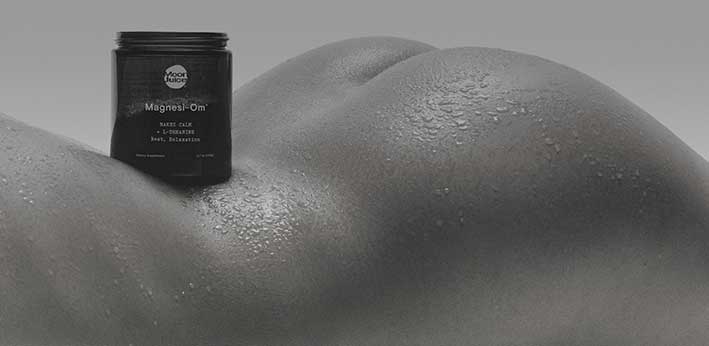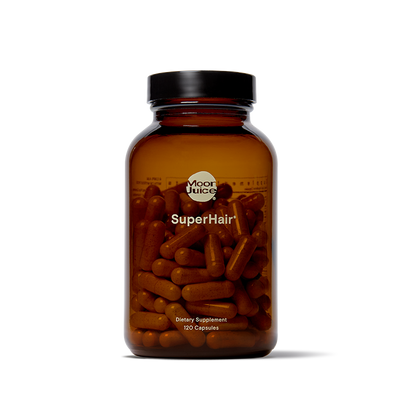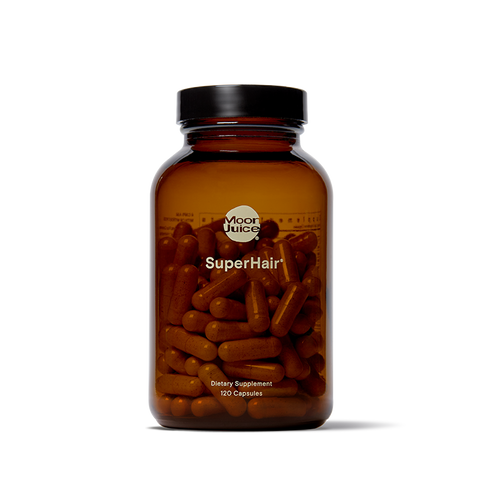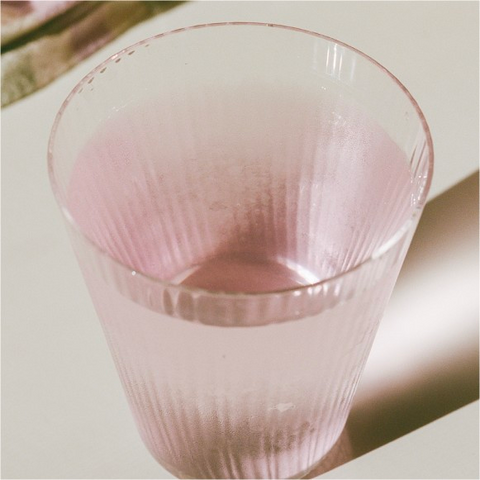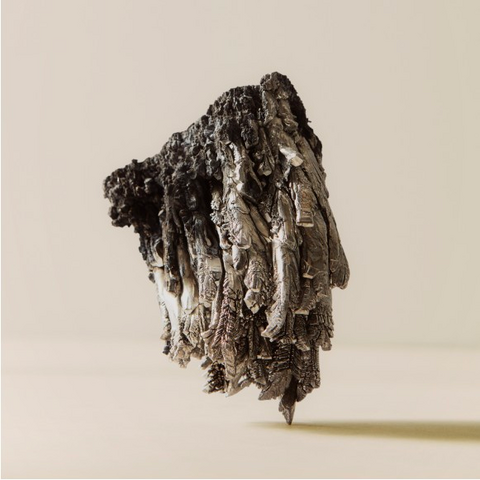If you’re looking for a supplement to add to your diet for healthy hair, skin, and nails, look to Biotin.
Biotin is a B vitamin that provides essential nutrition to your body. It occurs naturally in a variety of foods and has been linked to several of the body’s most important biological processes—from building DNA to boosting your immune system.
Although biotin deficiency is relatively rare, there are a wide range of benefits associated with supplementing Biotin, including support for hair, skin, and nails.
What is Biotin?
Biotin is one of eight B vitamins, many of which are crucial to your general health and well-being. Together, B vitamins are instrumental in some of the body’s critical functions including:
- DNA production
- Formation of red blood cells
- Immune system health
- Metabolic function
- Nerve function
Biotin in particular, also known as Vitamin B7, is an essential part of:
- Fatty acid synthesis – The creation of new fatty acids. The human body uses biotin and other enzymes to build new fatty acids using acetyl-CoA molecules and a powerful electron known as nicotinamide adenine dinucleotide phosphate, or NADPH.
- Gluconeogenesis – When you aren’t consuming enough glucose from your diet, your body produces it through a process known as gluconeogenesis. It uses fragments from existing glucose or materials from broken down lipids to help keep your blood glucose levels regulated. Biotin delivers CO2 to help aid in glucose level regulation.
- Amino acid metabolism – Biotin helps your body break down amino acids that it uses to make important proteins, metabolize and digest food, and maintain body tissue.
Biotin also plays a critical role in digestion by assisting other natural enzymes in breaking down fats and carbohydrates throughout the body.
Where Does Biotin Come From?
There are certain vitamins, like Vitamin B12 and Vitamin D, that are hard to consume at adequate levels via diet alone. Fortunately, that isn’t the case with biotin. Biotin occurs naturally in many foods you probably already enjoy.
Excellent sources of Biotin include:
- Sweet potato
- Spinach
- Broccoli
- Nuts
- Seeds
- Bananas
- Apples
- Oatmeal
If you eat a diet with ample amounts of these foods, you will likely be able to obtain all the biotin you need. But if the foods you consume don’t provide a sufficient amount of biotin, taking an oral supplement could help you reach recommended levels.
Signs of a Biotin Deficiency
Biotin deficiencies are incredibly rare and almost never occur in people who are generally healthy. However, certain health factors can put you at greater risk of developing a Biotin deficiency.
Studies show that excessive alcohol consumption can lead to biotin deficiency. In some cases, people who are pregnant or breastfeeding may also experience a deficiency. People with a rare autosomal recessive disorder known as Biotinidase deficiency are also thought to be at increased risk of developing a biotin deficiency.
Signs that your levels of biotin are too low may be indicated by:
- Brittle nails
- Pink eye flareups
- Hair loss or thinning hair
- Scaly rashes around the eyes, nose, mouth, and genital area
- Cognitive/neurological changes
3 Benefits of Taking Biotin Supplements
As an essential vitamin, biotin has been linked to several health benefits. These benefits mainly come from biotin’s role in helping your body’s biological functions run smoothly - but as biotin helps synthesize fatty acids and maintain body tissue, it also may be especially beneficial for healthier hair, nails, and skin.
#1 Hair Growth
Thinning hair and balding are often a natural part of the aging process. As you age, your body experiences changes in the way it processes and distributes certain nutrients. Hereditary and environmental influences may change the appearance of your hair such as thinning, breakage, and shedding.
There’s evidence to suggest that taking a biotin supplement (along with other compounds) benefits hair health and may lead to stronger, healthier hair. According to one study, a combination intervention with biotin to positively impact:
- Hair thickness
- Volume
- Scalp coverage
Biotin is believed to aid with hair growth in part because it can strengthen your hair. It can also make your follicles, or the glands that your hairs stem from, grow more quickly.
#2 Stronger Nails
If you have thin, brittle nails that break easily, biotin supplements might make a big difference. Biotin helps your body produce a protein known as keratin. Keratin is an essential building block for your hair, the outer layer of your skin, and your fingernails and toenails.
Research into the link between biotin and nail health suggests that Biotin supplements may be useful in repairing and strengthening brittle or fragile nails. In one study, 91% of participants who were given a daily dose of a Biotin supplement reported improvements in nail health, firmness, and hardness.
Another study showed that 63% of participants who were given a daily dose of a Biotin supplement experienced improvement in nail health. The study also indicates that Biotin may help improve nail plate thickness by up to 25%
#3 Healthy Skin
Similar to its ties to hair and nail health, the connection between Biotin and skin health comes primarily from Biotin’s role in producing keratin. Aside from helping your hair and nails grow, keratin also helps form the outer layer of your skin and is instrumental in keeping your skin healthy.
Biotin also plays an important role in your body’s production of fatty acids. This is relevant to skin health because fatty acids help deliver key nutrients to your skin.
Considerations for Taking Biotin Supplements
While biotin supplements are generally regarded as safe, it’s important to:
- Talk to your healthcare provider before adding any supplements – Your healthcare practitioner can help you hone your daily intake, diet, and routine to make the most of your biotin supplement.
- Read the ingredients label of your chosen product – If you take a biotin or hair support supplement, read the label carefully to get a feel for the active and inactive ingredients. You should also ask your healthcare provider or pharmacist if the ingredients will interact negatively with any medications or other supplements you’re currently taking.
Taking biotin supplements can interfere with the results of certain lab tests, so you should let your doctor know you’re taking them if you plan on having any labs done.
Increase Your Biotin Levels
If you’ve been looking for a solution to support healthy hair, skin, and nails, biotin could help! You can add more biotin to your diet by increasing the amount of biotin-rich greens, nuts, seeds, and fruits, or by taking supplements containing biotin. Biotin supplements are available on their own or as part of a multivitamin.
While it’s difficult to consume too much biotin through foods, those taking biotin supplements will want to exercise caution to avoid the unintended effects of taking too much. The Mayo Clinic recommends a daily intake 30–100 mcg for adults. If you are biotin deficient (which is highly unlikely, but possible), your healthcare provider may recommend a different dosage to help you return to healthy levels.
Our SuperHair supplement combines ten essential vitamins, including biotin, that may help strengthen your hair, promote healthier nails, and keep your skin glowing. Infused with ashwagandha, SuperHair also works to keep your stress hormones balanced, which can prevent hair thinning and shedding. Think of it as your daily multivitamin, plus hair magic.

Sources
- MedlinePlus. B Vitamins. https://medlineplus.gov/bvitamins.html
- Oregon State University. Biotin., https://lpi.oregonstate.edu/book/export/html/47
- PubMed. Biochemistry, Gluconeogenesis. https://www.ncbi.nlm.nih.gov/books/NBK544346/
- National Library of Medicine. Physiology, Gluconeogenesis. https://www.ncbi.nlm.nih.gov/books/NBK541119/#:~:text=Gluconeogenesis%20is%20the%20process%20that,Gluconeogenesis).
- MedlinePlus. Amino Acids. https://medlineplus.gov/ency/article/002222.htm#
- Cleveland Clinic. 5 Vitamins You Should Take More Of. https://health.clevelandclinic.org/5-vitamins-you-might-be-missing/
- National Institutes of Health. Biotin – Health Professional Fact Sheet. https://ods.od.nih.gov/factsheets/Biotin-HealthProfessional/#
- Cleveland Clinic. Your Guide to Aging, Thinning Hair: 5 Simple Tips. https://health.clevelandclinic.org/your-guide-to-aging-hair/
- PubMed. A Double-blind, Placebo-controlled Study Evaluating the Efficacy of an Oral Supplement in Women with Self-perceived Thinning Hair. https://www.ncbi.nlm.nih.gov/pmc/articles/PMC3509882/
- Cleveland Clinic. Keratin: Protein, Structure, Benefits, Uses, & Risks. https://my.clevelandclinic.org/health/body/23204-keratin
- PubMed. [Treatment of brittle fingernails with Biotin]. https://pubmed.ncbi.nlm.nih.gov/2648686/
- PubMed. Brittle nails: response to daily Biotin supplementation. https://pubmed.ncbi.nlm.nih.gov/8477615/
- PubMed. Healing fats of the skin: the structural and immunologic roles of the omega-6 and omega-3 fatty acids. https://pubmed.ncbi.nlm.nih.gov/20620762/
- Mayo Clinic. Biotin (Oral Route) Side Effects. https://www.mayoclinic.org/drugs-supplements/Biotin-oral-route/side-effects/drg-20062359?p=1
- National Institutes of Health. Biotin. https://www.ncbi.nlm.nih.gov/books/NBK554493/#
- Mayo Clinic. Biotin (Oral Route). https://www.mayoclinic.org/drugs-supplements/biotin-oral-route/proper-use/
- NIH. Biotin. https://www.ncbi.nlm.nih.gov/pmc/articles/PMC4757853/
